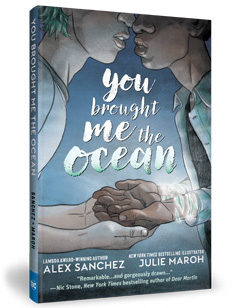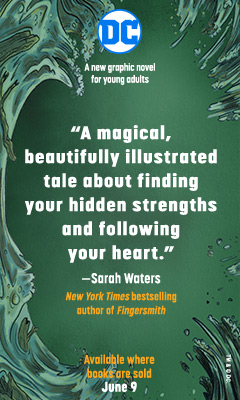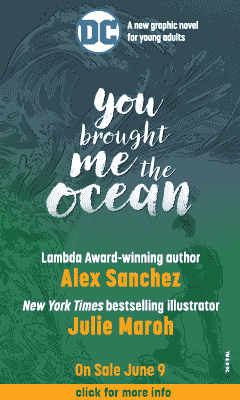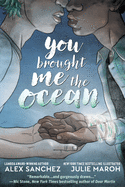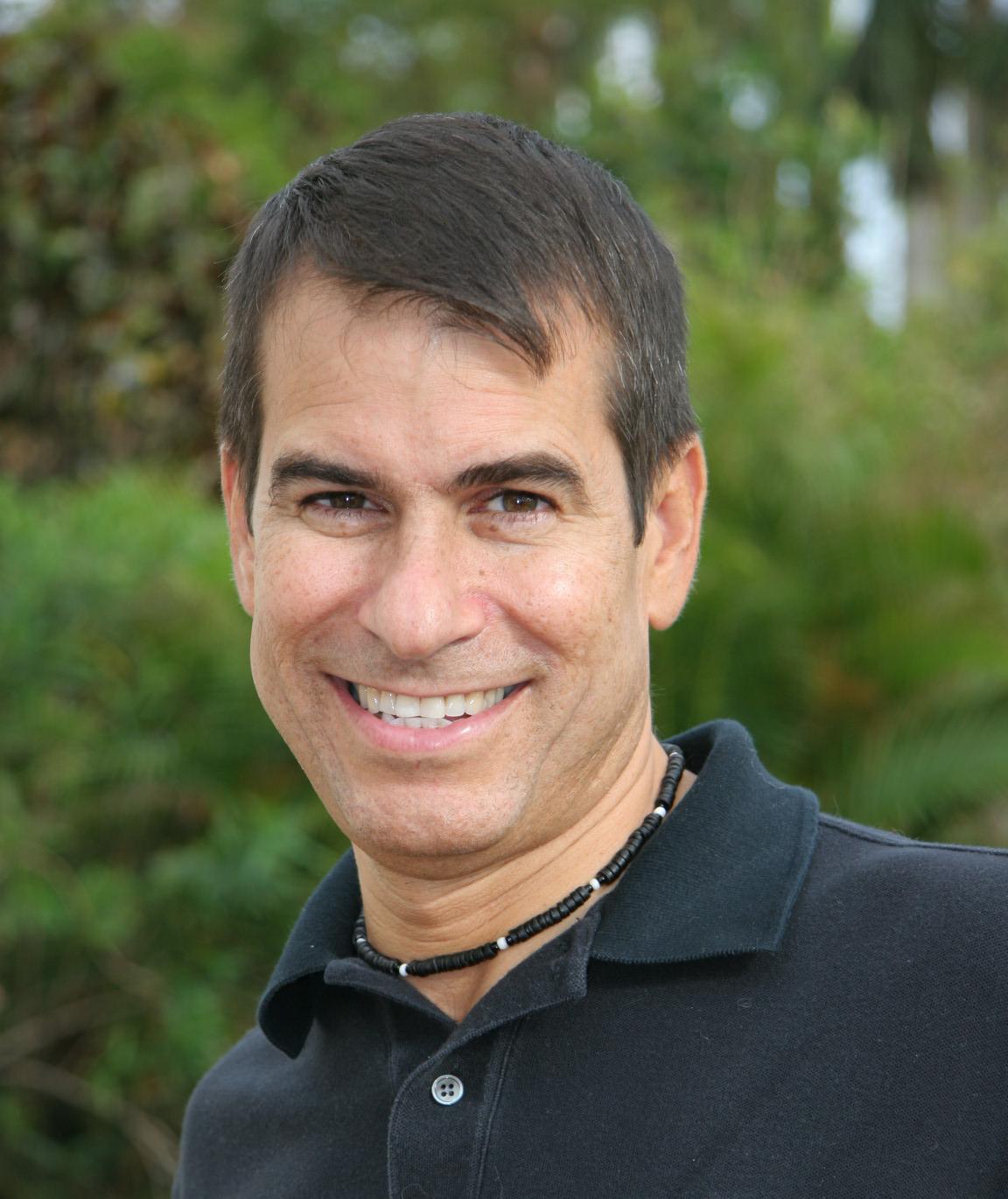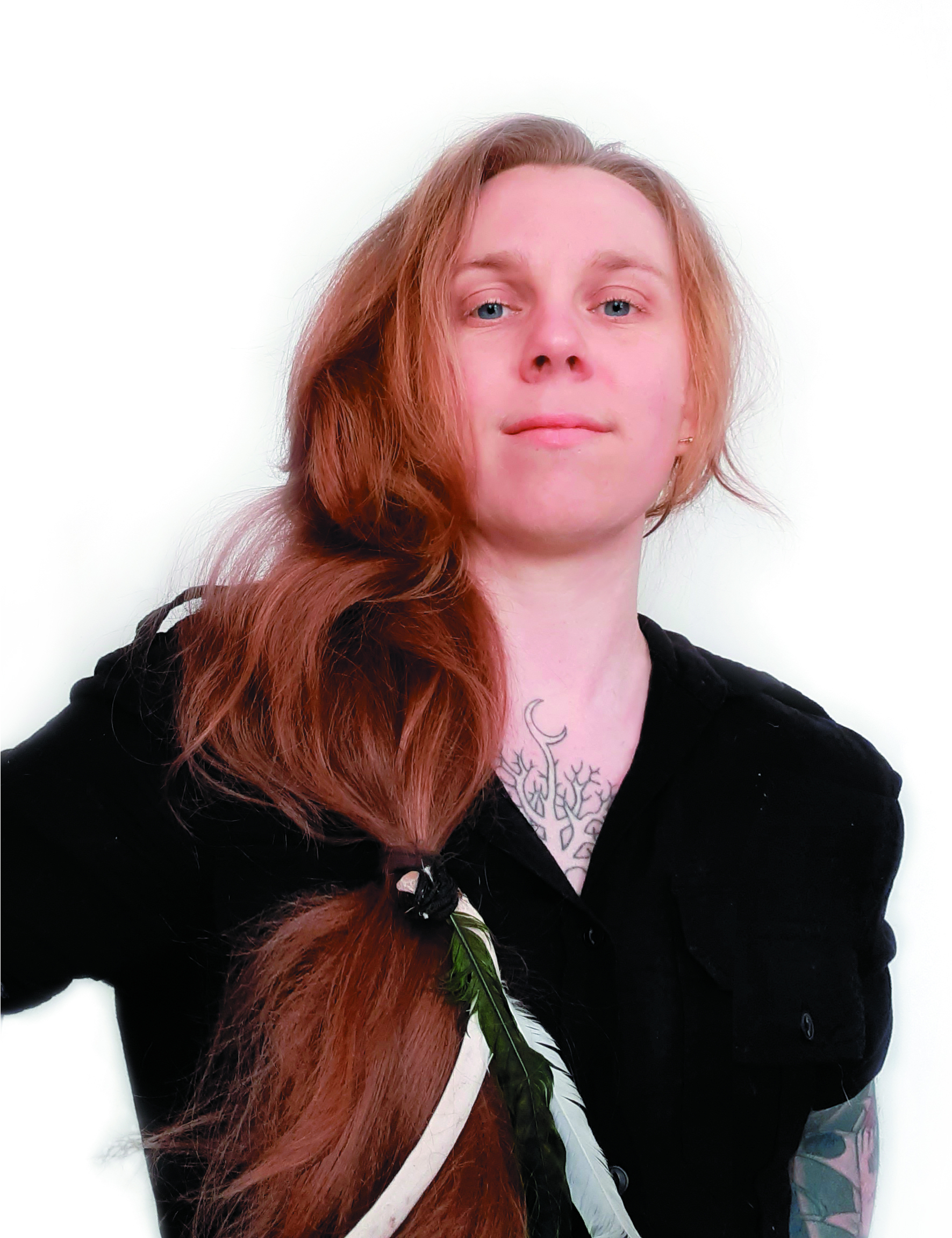You Brought Me the Ocean
by Alex Sanchez, illus. by Julie Maroh
Lambda Award-winning author Alex Sanchez (Rainbow Boys) and New York Times bestselling illustrator Julie Maroh (Blue Is the Warmest Color) team up for a gorgeously rendered graphic novel that reimagines the origin story of DC's Aqualad. Part coming-out romance, part superpower discovery tale, this exploration of identity from two icons in LGBTQIAP+ literature portrays how loved ones are able to lend each other incredible strength.
High school senior Jake Hyde dreams of the ocean but lives in the New Mexico desert. His mother has forbidden him to go near water since his father drowned. Overprotective to a fault (Jake once "threatened to leave home if she didn't stop asking, 'Did you poop today?' "), she wishes Jake would abandon plans to study oceanography at the University of Miami and apply in-state with his best friend, Maria Mendez. Unlike Jake, Maria never wants to leave home: "Don't you just want to hug the desert?" Secretly, Maria hopes that if Jake stays, they'll (finally) date.
No one knows Jake is gay and crushing on swim team captain Kenny Liu. Openly gay in a "puny fishbowl town," Kenny isn't scared to "make waves" and shuts down bullies who taunt him with yells of "Kill the queer!" Though extroverted and unashamed, Kenny isn't immune to homophobia: "It's hard to grow up different where different means people call you a freak," he laments. Jake, too, wants someone to understand him but fears that "I've hidden myself so much even I'm not sure who I am."
On a long hike, Jake musters his courage and comes out to Kenny, confiding in him about everything--even his strange skin markings that glow in water. "All my life I've felt like there's something wrong with me," he tells Kenny right before a flash flood threatens to drown them both. Jake's instincts take over: he shields Kenny and telepathically diverts the tidal wave. Uncertain what this strange talent means, Jake feels suffocated by his differences. As his mom rebuffs his questions, Jake's lies about college, Kenny and his superpower pile up between him and Maria. Then a fight with Kenny endangers the relationship with the only person Jake believes truly knows him. Mending his fractured friendships will first mean accepting himself. But how can he do that when he's unsure who he is?
You Brought Me the Ocean masterfully conveys the conflicting emotions behind coming out and self-discovery. By pairing Jake's readiness to pursue a romantic relationship with a boy with the manifestation of his hydrokinesis, Sanchez delivers the vital message that there is more to every member of the LGBTQIAP+ community than their sexual identity. Although Jake questions foundational aspects of himself, he knows the answers won't overwrite his personality or change how he jokes with Maria or gives his mom grief. Similarly, Kenny compares his homosexuality to being Chinese--something he can't and wouldn't change--pointing out that his orientation is ingrained in his broader persona, not its only marker.
Throughout, a resonant parallel between gender, sexuality and water takes shape. Jake (perhaps subconsciously) makes this connection when talking with Kenny about the ocean after he comes out: "Water is deep beneath us. A whole fluid world... Bubbling up... And breaking through the surface." He compares quelling that emergence to drowning in a "sea of secrets." It makes sense, then, that he has the innate ability to bend water, when it symbolizes his inseparable Atlantean background and immutable inner self. But this doesn't mean he can't direct his own narrative. With myriad labels to embrace, Jake picks which ones to disclose to whom, exemplifying how a perceived support system and a sense of control can dictate when and how a person shares their story.
Limiting their art palette to oceanic and earth tones, Maroh adds multiple layers to Sanchez's story. By strategically washing out the desert environment, they let the reader experience Jake's worldview: "I'm destined to stay stuck here, treading water in this ocean of sand where nobody understands me." In contrast, pops of blues and greens draw the eye to the details Jake values. For example, Kenny's hair is a bold turquoise--the same color as a stone he gifts Jake. "The color always reminded me of the sea," Kenny explains. "Now it reminds me of you." Maria, intrinsically connected to the place Jake wants to leave yet someone whom Jake cherishes, unites both hues, appearing in muted backdrops brightened by flowering cacti and her mother's red and green enchiladas. Striking facial expressions also elevate Sanchez's words. Maroh plunges to the heart of each character, conveying in only a few strokes the charged underpinnings of every action. Additionally, breathtaking full-page spreads give pivotal scenes their due spotlight, the boundaries of the comic panels falling away in the awe-striking moment Jake first manipulates water.
Swoon-worthy flirting, awkward high-fives and hilarious demonstrations of Jake's ability balance the more somber images of Jake learning the grim truth behind his birth, bigots attacking the three companions and rocky conversations about the future. Jake's refusal to hide--from those who would judge his queerness and from the dangers associated with Atlantis--is an inspiring mentality. Depicting the hard-won confidence of a newly out gay teen superhero, You Brought Me the Ocean adds fresh voices from the LGBTQIAP+ community to the DC Universe. --Samantha Zaboski



